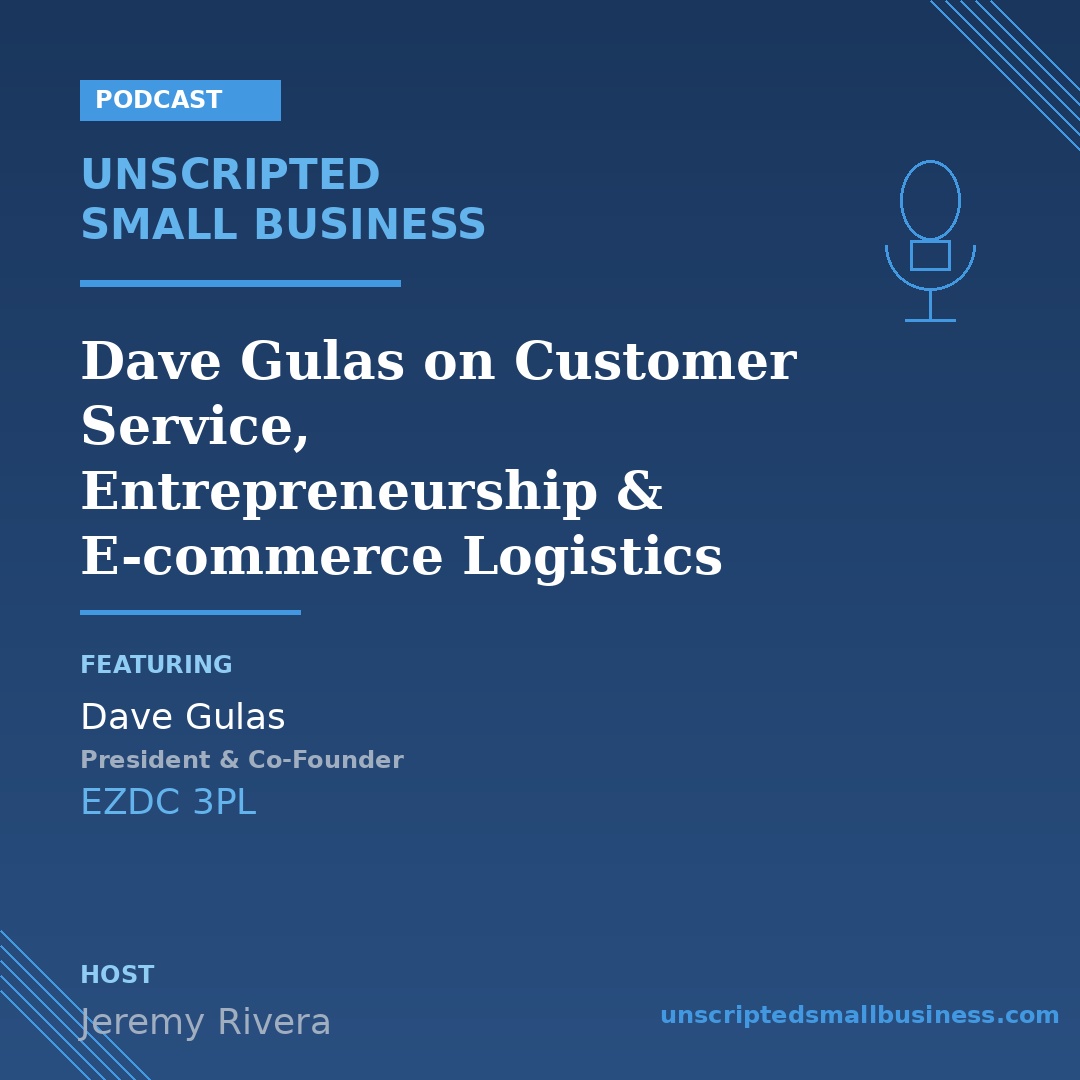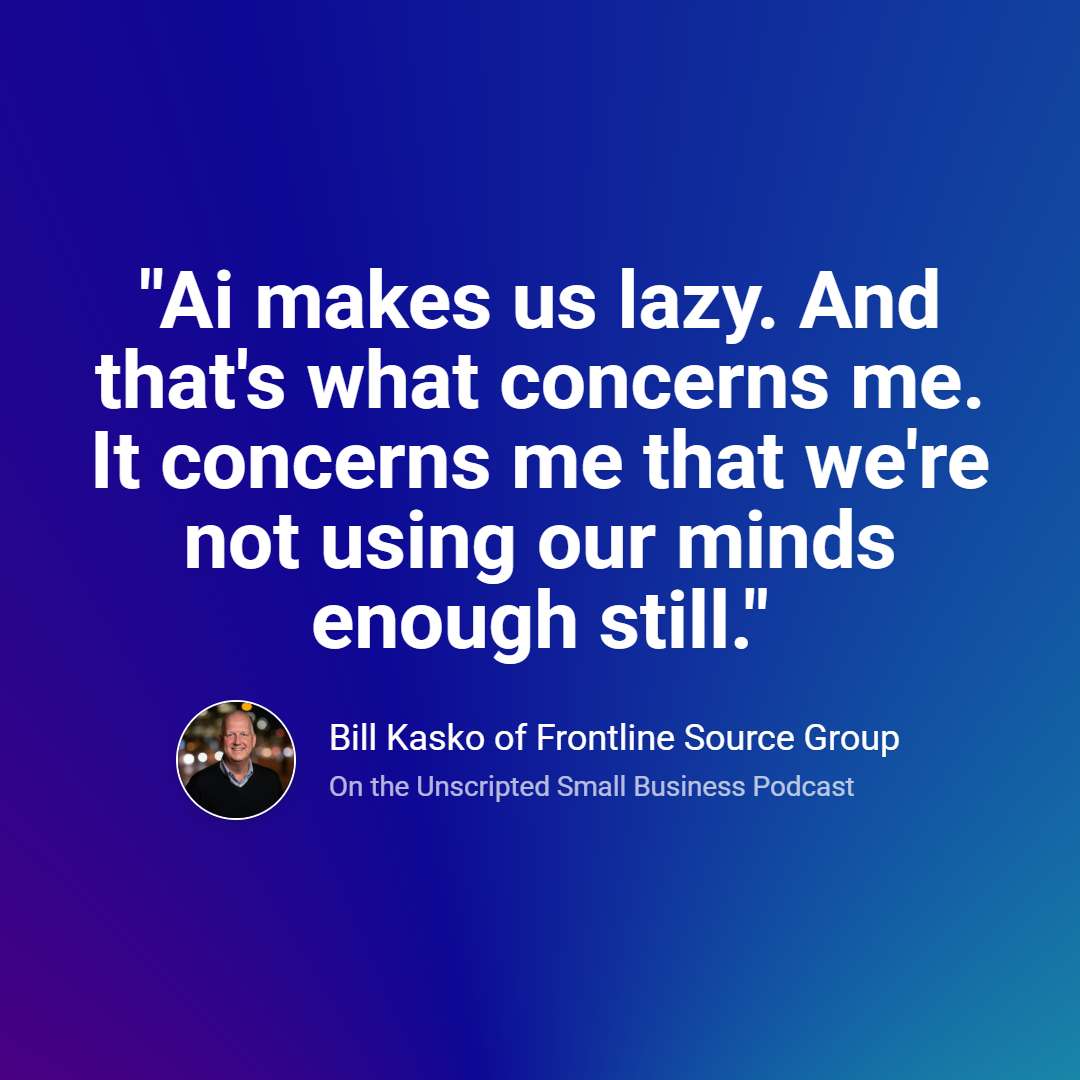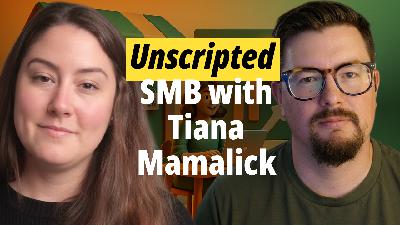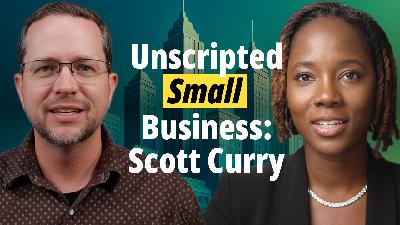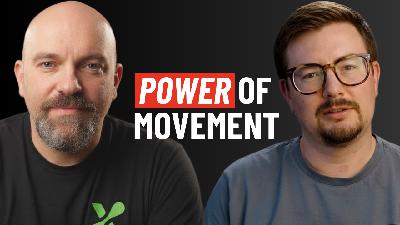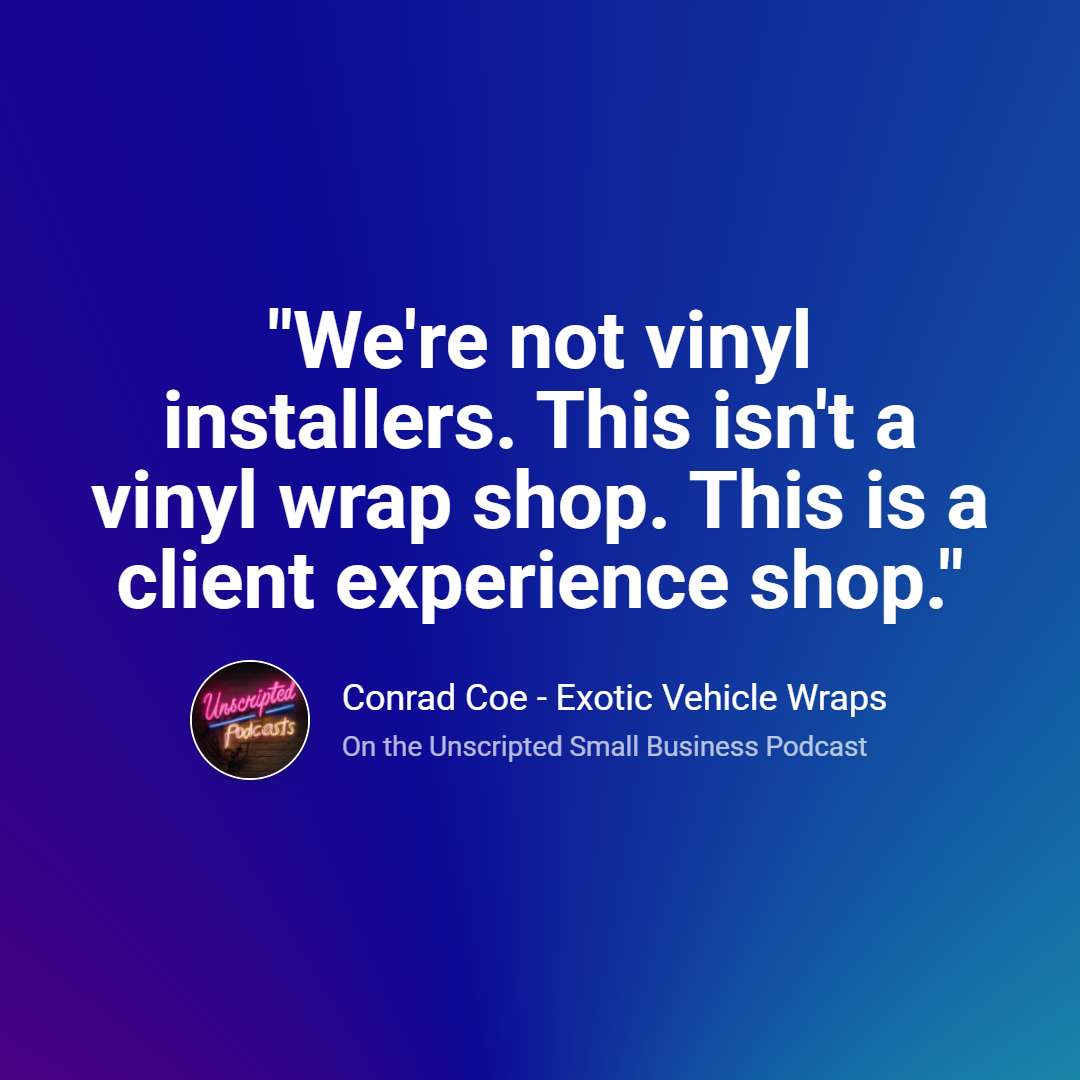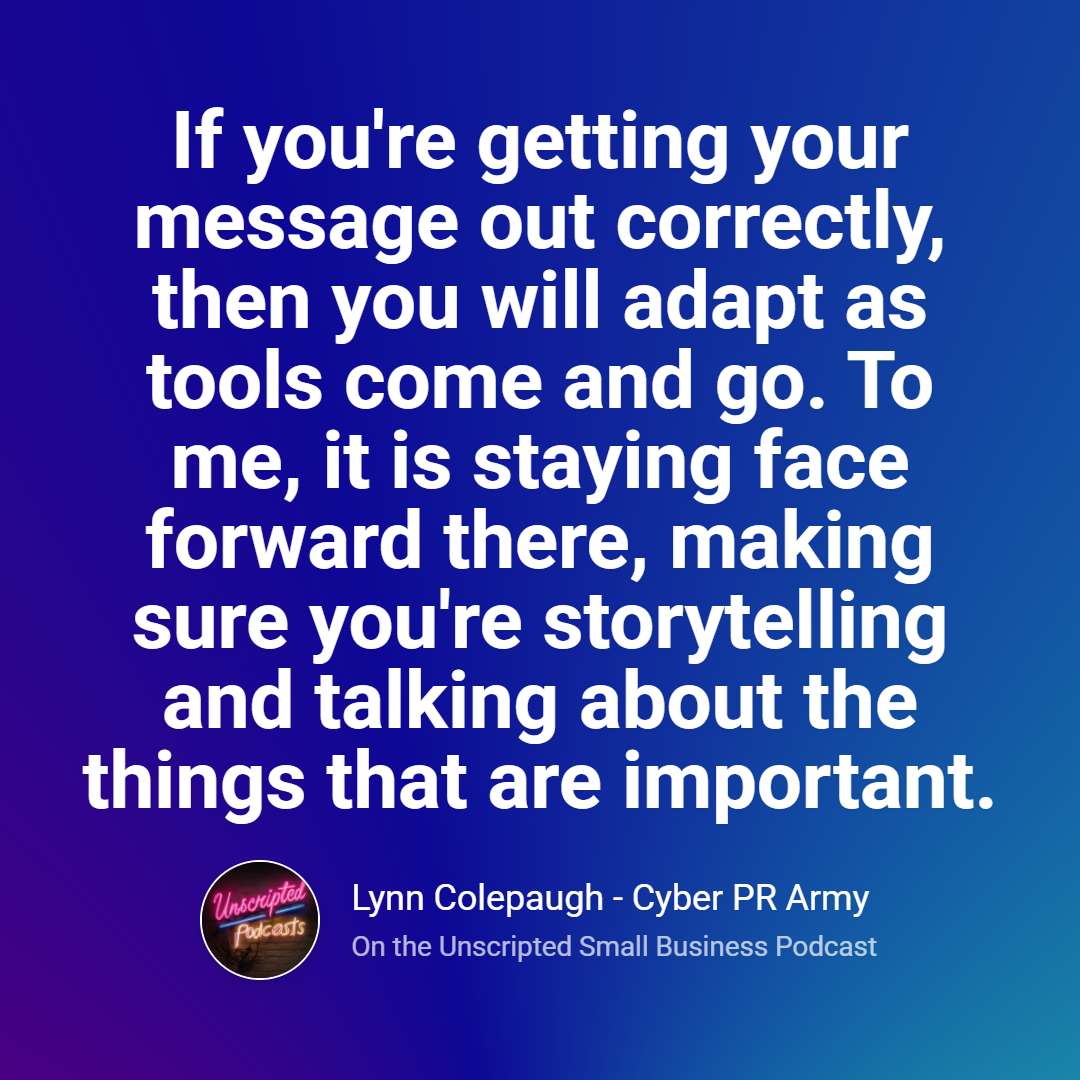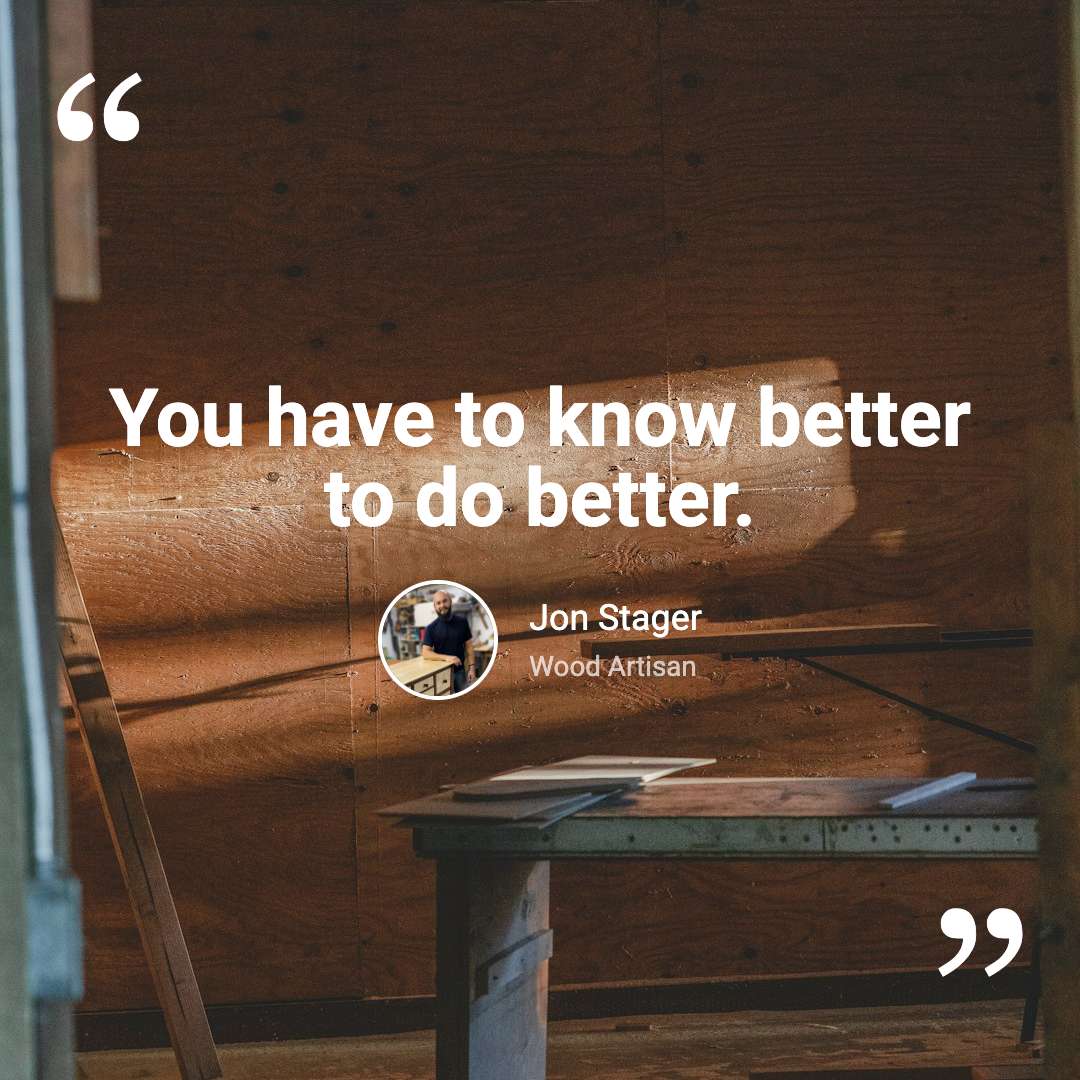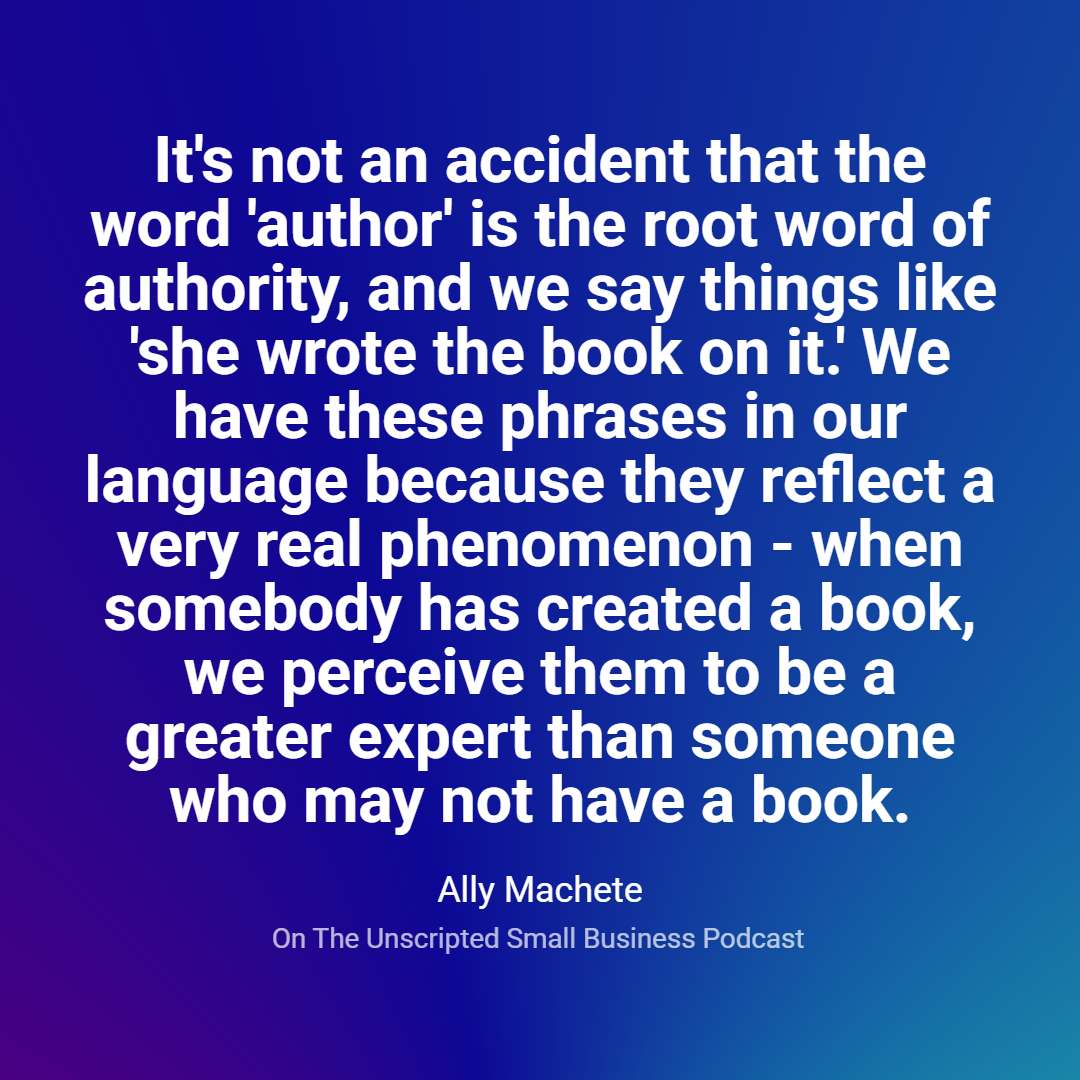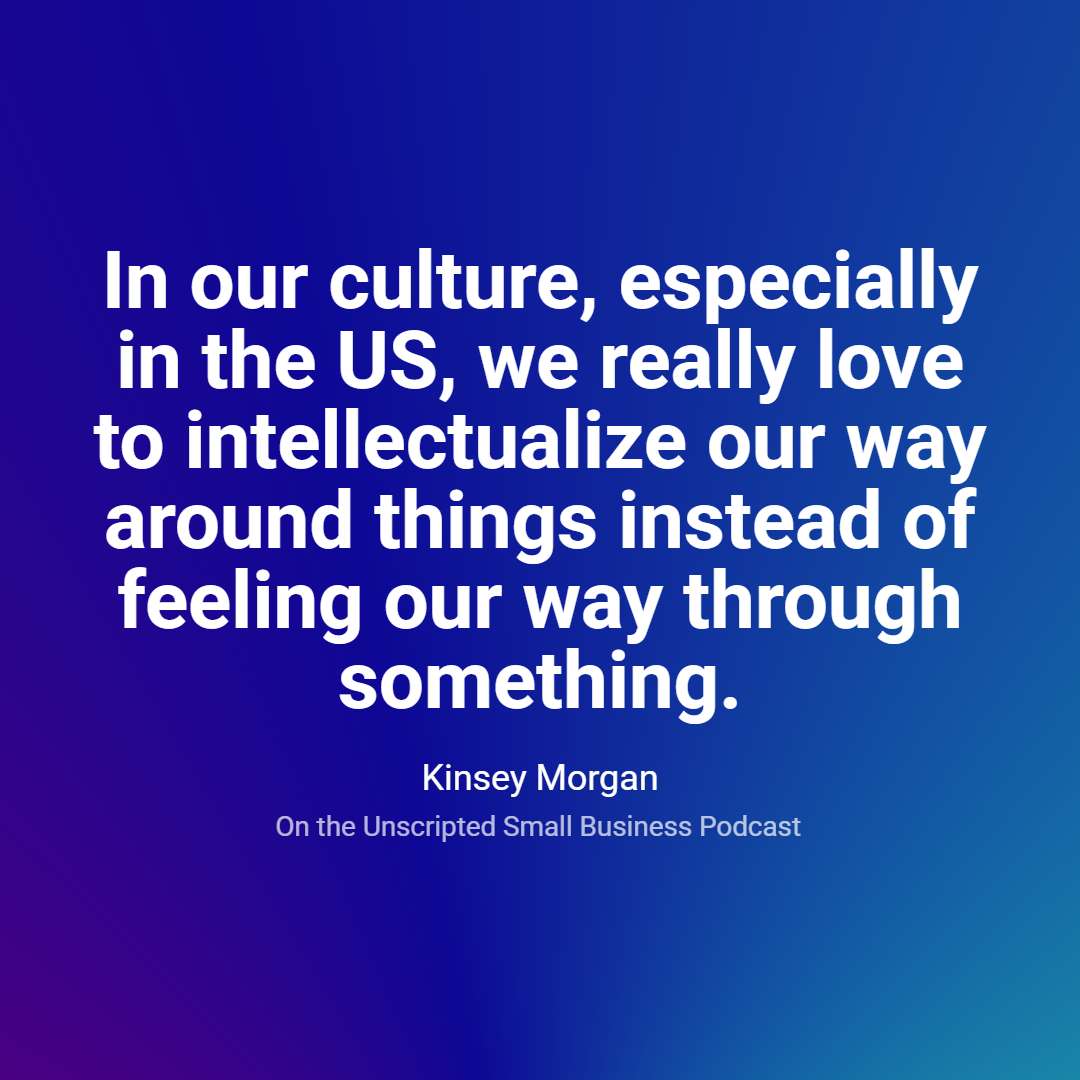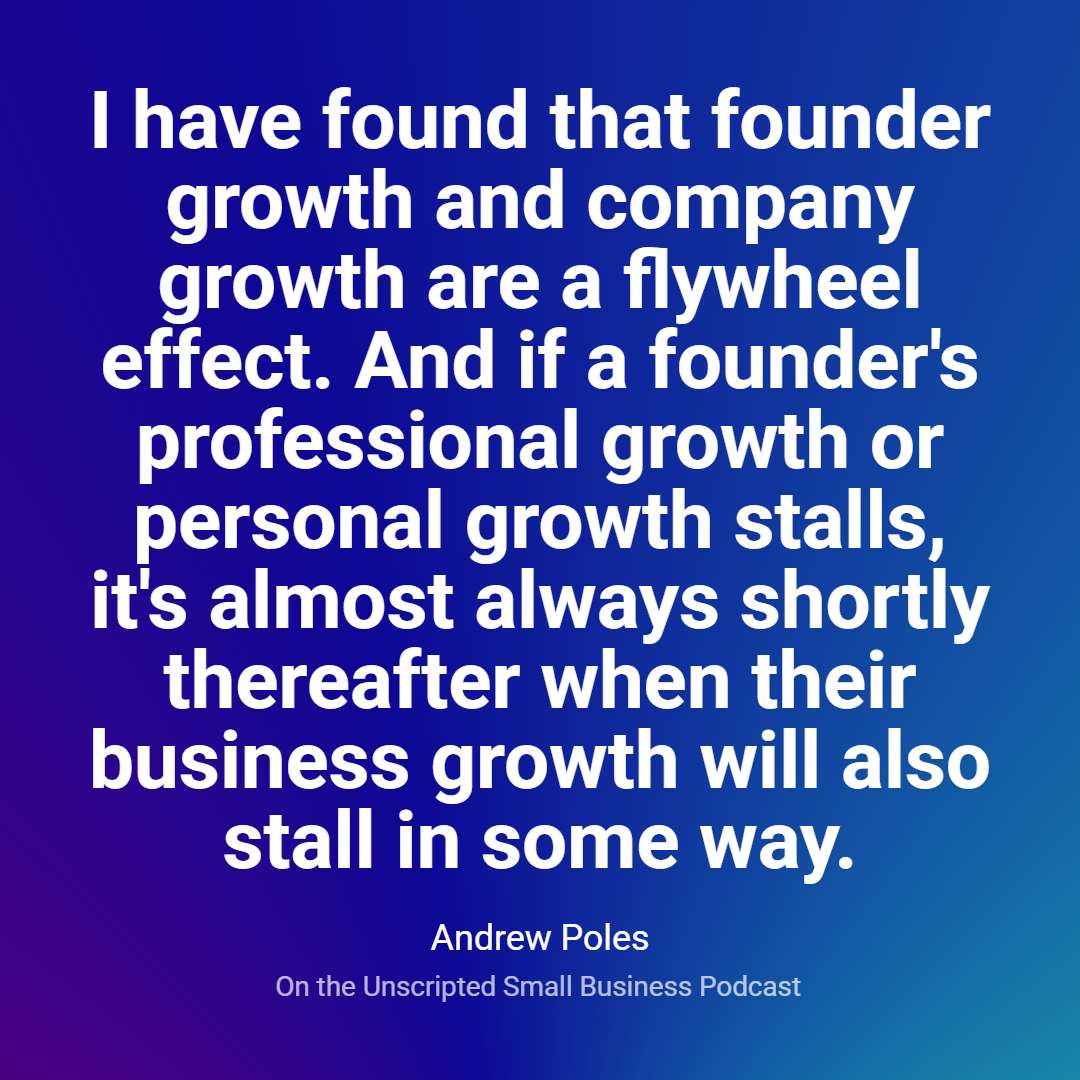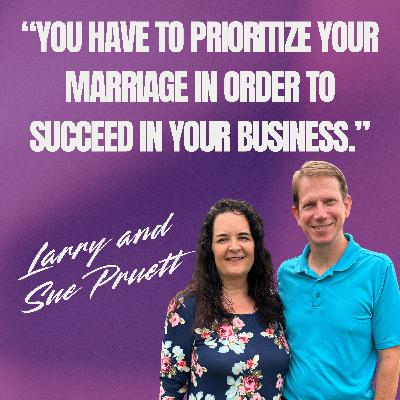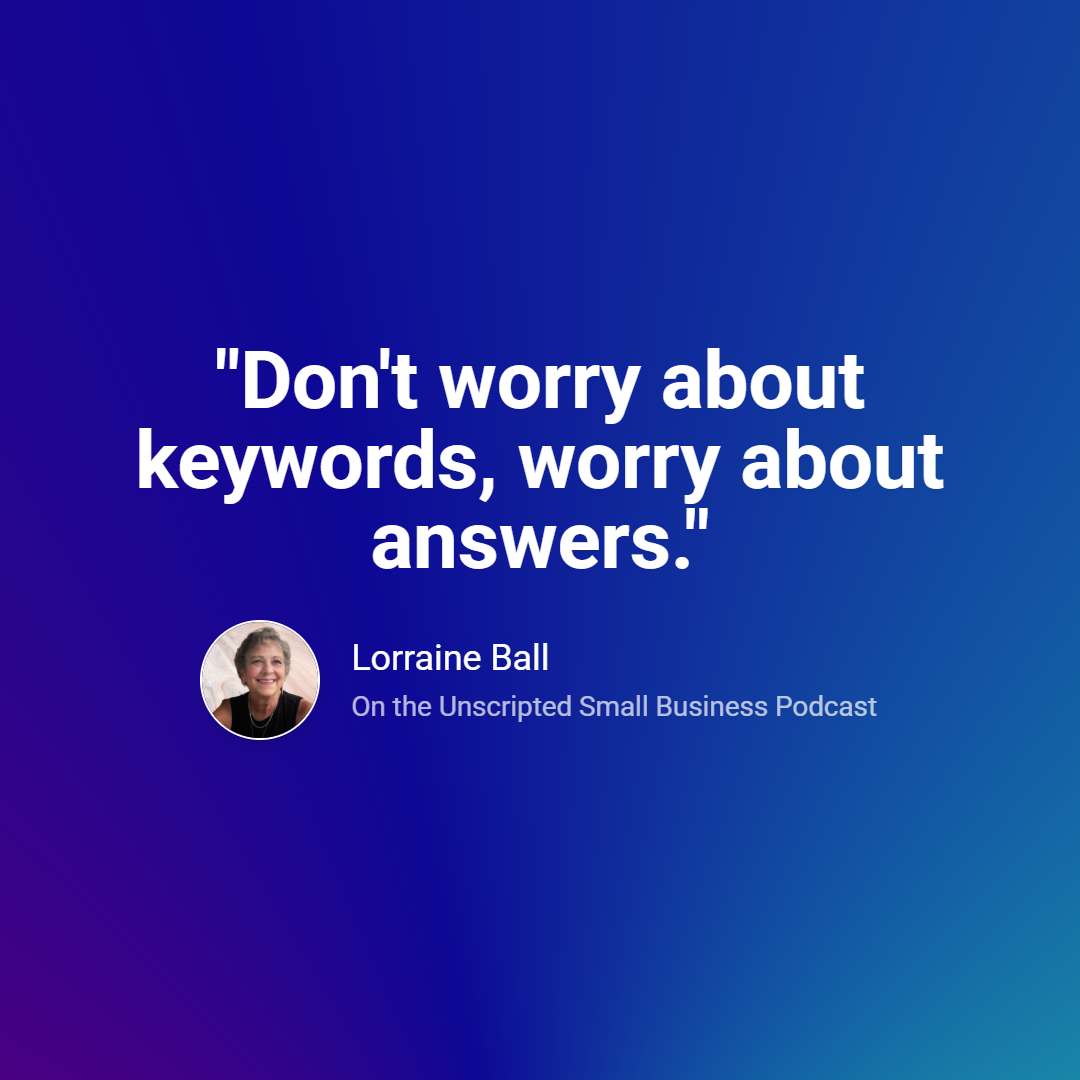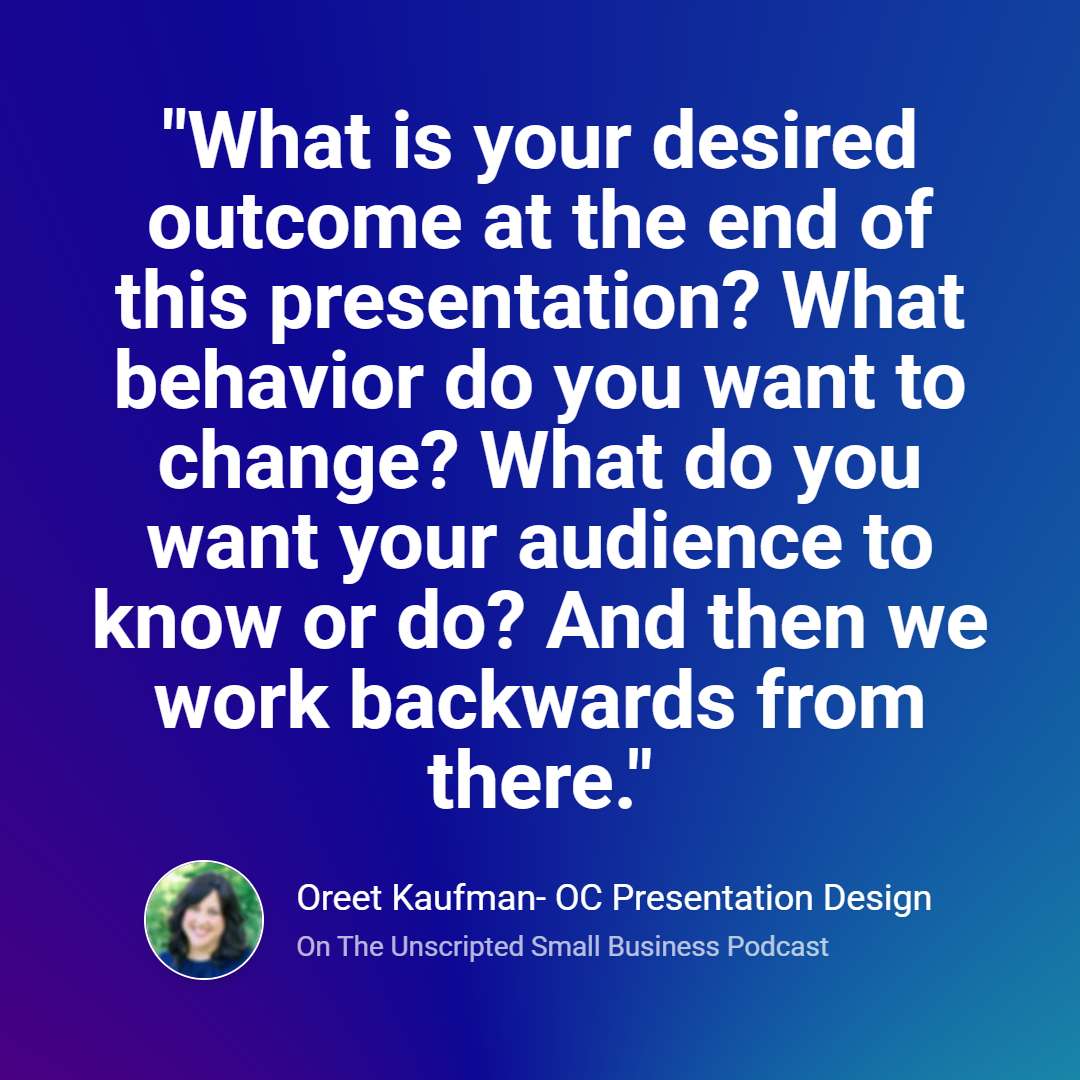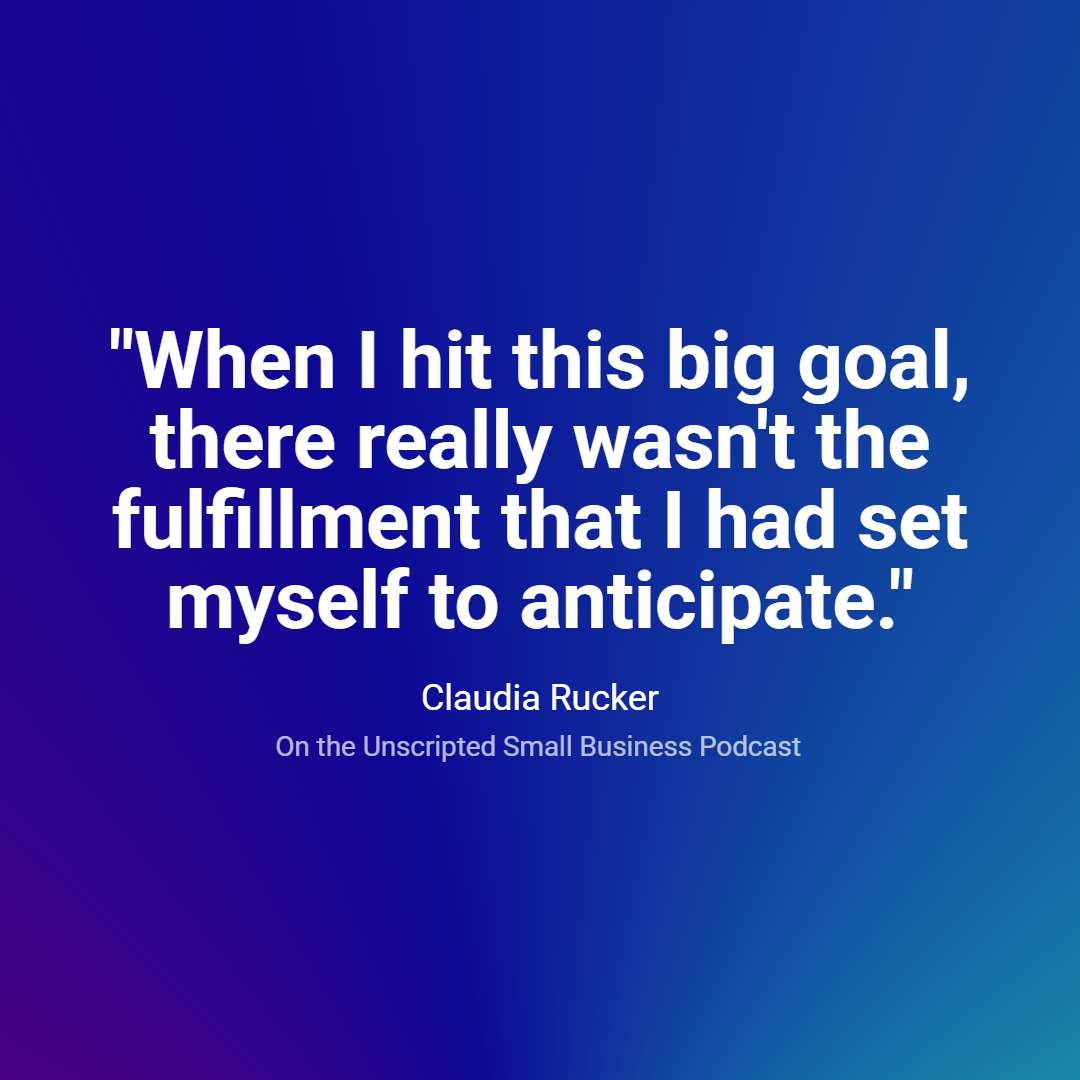Discover Unscripted Small Business
Unscripted Small Business

Unscripted Small Business
Author: Abbey Crane
Subscribed: 1Played: 0Subscribe
Share
© 2025
Description
Our Unscripted Collaborative hosts Keith Bresee, Zaneta Chuniq, Keiron Bailey & 17 year SEO industry expert Jeremy Rivera are having unscripted interviews small business owners, founders and creators across the United States, learning about their challenges, successes and insights into the world of SMBs.
48 Episodes
Reverse
Sara Nay, CEO of Duct Tape Marketing, joins Jeremy Rivera to discuss why strategy must come before tactics in small business marketing. With 15 years at Duct Tape Marketing—starting as an intern and rising to CEO—Sara shares the agency's proven approach to building trust through transparency, education, and true partnership.
This conversation covers the evolution of SEO in the age of AI, why customer interviews are non-negotiable, how to structure content for both humans and LLMs, and why quarterly planning beats annual marketing plans in today's rapidly shifting landscape.
Guest Bio
Sara Nay is the CEO of Duct Tape Marketing, where she has spent 15 years helping small businesses build effective marketing strategies. She recently authored Unchained: Breaking Free from Broken Marketing Models, offering a fresh perspective on escaping outdated marketing approaches that no longer serve today's businesses.
Connect with Sara Nay
Website: ducttapemarketing.com
LinkedIn: linkedin.com/in/saranay
Book - Unchained: unchainedmodel.com
Key Topics Covered
[00:00] Introduction and Sara's journey from intern to CEO
[01:20] The reporting problem: cutting through vanity metrics
[04:14] Why beautiful websites fail without customer journey mapping
[06:07] SEO evolution: from keywords to questions in the AI era
[08:50] Showing up in AI search results and LLM citations
[11:57] Local SEO strategy for service businesses
[13:26] The strategy-first process: interviews and customer journey mapping
[15:12] The power of leadership and customer interviews
[19:15] E-commerce vs. service business strategy differences
[21:16] Year one to year two: evolving campaigns with quarterly sprints
[24:38] Content strategy for AI visibility
[26:50] The future of authority and backlinks
[27:30] Co-marketing as a multiplier for small businesses
Best Quotes from This Episode
"A website should help people get to know, like, trust, and even be able to try your services and buy your services. Yes, it should look nice—that is important. But the content and the journey that you're guiding people on is what I would argue is the most important piece of the puzzle."
"We're not just creating marketing strategy for people anymore. We're creating marketing strategy for people AND AI."
"When people skip over leadership interviews and ideal client interviews, that's where they waste time, energy, and money on marketing in the long run."
"Gone are the days where you can just publish content and hope it shows up. You have to be very focused on what you're putting in the content, but also how you're structuring it."
"I believe you can't really plan for marketing further than three months at this time because it's changing, shifting, and evolving so much."
Resources & Links Mentioned
Duct Tape Marketing Resources
Duct Tape Marketing Homepage
Fractional CMO Services
The Marketing Hourglass / Customer Journey
Marketing Hourglass System
Ideal Customer Development
Google Business Profile Optimization
Sara's Book
If you've ever found yourself trapped in the exhausting cycle of filling your pipeline, delivering to clients, then scrambling to fill your pipeline again—this episode is for you. Rachel Minion, Head Rock Star at Rockstarr & Moon, joins host Zaneta Chuniq Inpower to break down why consultants get stuck in what she calls "the grind cycle" and how to escape it without working more hours.
Rachel brings a unique perspective as a third-generation entrepreneur who cut her teeth managing 400 to 1,200 estimates daily at her parents' printing company before moving into corporate marketing roles at Verizon Wireless and Ticketmaster. When the pandemic hit and she was furloughed, she went full-time on her consulting business and never looked back.
In this conversation, Rachel shares how her Profit Multiplier program helps consultants find at least $100,000 in hidden profit—with one client already seeing a 52% year-over-year sales increase and another at 42% growth, all without adding staff. She also gets refreshingly honest about the moment every entrepreneur faces when they think "maybe it would be easier to just get a job" and how to push through it.
The most tactical segment comes when Rachel describes losing her project manager of three years and her husband's challenge: what if you automated 80% of the role? Three weeks of intensive work later—mapping processes, rewriting SOPs, and building automations—she went from working 3 a.m. to 7 p.m. to finishing by 5:30 for dinner. Her example of turning meeting note-takers into automated task creation systems is something any consultant can implement immediately.
Rachel also challenges the common advice to just "talk about yourself more" when marketing your consulting business. Her reframe: make the client the hero of every success story. When you showcase their transformation and challenges, prospective clients see themselves achieving the same results.
The conversation touches on why systems beat hustle every time, the importance of interconnected tools rather than disconnected apps, and Rachel's ambitious goal to help 100 small businesses double by 2029. She argues that when small businesses grow, the ripple effects extend far beyond revenue—to their families, communities, local little leagues, and neighboring businesses in ways that large corporations simply don't replicate.
For consultants struggling with inconsistent lead flow, Rachel's core message is clear: you're not lacking talent, you're lacking structure. And more hustle won't fix a business that isn't built on a proven growth system.
Connect with Rachel directly at rachelminion.com or explore her consulting frameworks at rockstarrandmoon.com—that's Rockstarr with two R's at the end.
Rachel's current reading stack includes Alex Hormozi's $100M Offers and $100 Million Leads, which she returns to regularly for fresh ideas on testing and experimentation.
About the Host
Zaneta Chuniq Inpower is a marketing professional and entrepreneur based in Atlanta with experience across multiple industries including resume writing and personal branding.
About the Guest
Rachel Minion is the founder and Head Rock Star at Rockstarr & Moon, a RevOps organization helping B2B consultants escape the grind cycle and build predictable, scalable profit. A third-generation entrepreneur...
Episode from the Unscripted Small Business Podcast
Host: Jeremy Rivera — SEO Arcade Founder & Freelance SEO Consultant
Guest: Dave Gulas — President & Co-Founder of EZDC 3PL
Sponsored by: Cookeville Sunroom Company
About the Guest
Dave Gulas is the president and co-founder of EZDC 3PL, providing warehousing, fulfillment, and transportation services for manufacturers and e-commerce brands. With 20 years in medical/pharmaceutical sales and over three years in logistics, Dave brings a customer-first approach to the 3PL industry.
Dave also hosts the Beyond Fulfillment Podcast, featuring real stories from entrepreneurs — available on the EZDC Blog and all major podcast platforms.
Episode Summary
In this conversation, Dave shares how he and his partner identified a gap in the 3PL market — legacy providers weren't delivering the customer service that growing e-commerce brands needed. Three years later, EZDC has built a reputation for responsiveness and genuine care.
Key Topics Covered:
Why e-commerce brands reach a "graduation point" where outsourcing fulfillment makes sense
The importance of warehouse management systems (WMS) and automated integrations
Common mistakes when scaling a business — saying yes to the wrong customers
Bootstrap vs. funded startups: which succeed more often?
The unglamorous reality of entrepreneurship
Why personal branding matters more than ever in 2026
Resources & Links Mentioned
About EZDC 3PL
EZDC 3PL Homepage
About EZDC
Packaging and Kitting Services
Retail Logistics and Warehousing Services
The Kentucky Advantage: Why a Central Hub is Key for Nationwide 3PL
EZDC Blog & Beyond Fulfillment Podcast
Connect with Dave Gulas
Dave Gulas on LinkedIn
SEO & Marketing Resources
From SEO Arcade:
SEO Forecasting 101: Methods, Metrics, Tools, and Challenges
The Revenue-First SEO Strategy That's Actually Working
Opportunity Sizing in SEO
How a Podcast Generates Links, Content, Audience, Citations & Authority
White Label Podcast Service
From Jeremy Rivera SEO:
SEO Basics for Small Business
Simple, Effective Link Building
Unscripted Small Business Podcast - Episode Show Notes
The Costanza Theory: How Doing the Opposite Built a 21-Year Business Empire
Guest: Bill Kasko, Founder & CEO of Frontline Source GroupHost: Jeremy RiveraPodcast: Unscripted Small Business by Be Sharp Digital Marketing
Episode Summary
In this episode, Bill Kasko shares how he built a successful recruiting and staffing agency by doing the exact opposite of industry standards. From inverting the traditional sales model to being the first company to publish pricing online, Bill's "Costanza Theory" has disrupted an entire industry for over two decades.
We dive deep into the evolution of customer service technology, the fragmentation of the search landscape, and how AI is creating both opportunities and challenges for businesses. Bill also shares his insights on the current job market and why honest communication wins more business than overselling.
Key Topics Discussed
The Costanza Theory in Action
How inverting the traditional sales-to-recruiter ratio created competitive advantage
Why being the only company with a pricing page became their #1 traffic driver
The importance of customer convenience over business convenience
Technology Evolution & Customer Service
Early adoption of online chat 21 years ago
The rise and fall of chatbot effectiveness
24/7 scheduling and weekend service calls
Why AI agents still aren't quite ready
The Changing Search Landscape
Why presence across multiple platforms is now essential
How TikTok became the #2 search engine for young users
The challenge of getting indexed across different search engines
Reddit dominating 60% of search queries
AI's Impact on Business
The rise of fake candidates using AI tools
How HR departments are adopting AI faster than job requirements
The cognitive decline concerns with AI dependency
Why verification processes had to evolve
Honest Marketing Philosophy
Why transparency builds more trust than overselling
The importance of setting realistic expectations
How detailed information (like gravel driveway delivery specifics) improves customer experience
Guest Information
Bill Kasko is the Founder and CEO of Frontline Source Group, a staffing agency and executive search firm with over 21 years of experience. Known for their industry-disrupting five-year placement warranty and contrarian business approach.
Connect with Frontline Source Group:
Website: frontlinesourcegroup.com
LinkedIn: Follow their company page for white papers and industry insights
Specialties: Executive Search,
Guest: Tianna Mamalick, SMB Marketing School
Episode Overview
Tianna Mamalick brings 12 years of SEO expertise focused exclusively on small businesses. In this conversation, she reveals why working with SMBs is more rewarding than enterprise clients, how to honestly manage expectations while delivering real results, and why she went back to human-written content after testing AI extensively. If you're a small business owner wondering what actually works in SEO right now, this episode cuts through the hype with practical, proven strategies.
Why This Episode Matters for Small Business Owners
Running a small business means every marketing dollar counts. Tianna specializes in helping businesses with limited budgets compete effectively by focusing on what drives actual revenue—not just traffic or rankings. She shares her formula for pairing SEO and paid ads that works specifically for service-based businesses, and explains why your service pages matter more than blog posts right now.
Key Discussion Points
The Small Business Advantage Unlike enterprise clients where a 20% conversion increase gets a polite "that's nice," small business owners email about life-changing results: hiring their first employee, taking their first vacation, or investing in business growth. For Tianna, this feedback makes the work meaningful.
Honest Expectations Setting
Three-month minimum commitment required
Clients must have budget they can afford to lose completely
Not every market works the same (example: Pilates in Las Vegas vs. other cities)
Regular check-ins at three months to evaluate if the strategy is working
The SEO + Ads Formula While ads don't directly boost SEO, they strategically help prime new pages through engagement. When expanding to multiple locations, running targeted ads on new service pages helps get Google Business Profiles moving faster and improves location-specific performance.
What's Actually Working in Content
Service pages are the priority: Every service needs its own detailed page
Blog posts are secondary: Focus on key blog content, not volume
Collaboration posts: Feature complementary businesses (example: makeup company writing about top lotions that pair well with their products)
Opinion-based content: Take hard stands on your values and approach
The AI Content Experiment Tianna's agency tested AI-generated content extensively—and none of those articles ranked well. They've gone 100% back to human-written content, using AI only for creating outlines based on top-ranking competitors. The reality: people want authentic mistakes and real human voice.
AI Search Reality Check Less than 10% of traffic comes from ChatGPT for most small businesses. While you should prepare by enriching About pages with certifications and expertise, this isn't the urgent crisis some marketers claim. Most people aren't using ChatGPT for business searches yet—we're still in early adoption.
Mining Your Best Content Stop using SEMrush as your starting point. Instead:
Record sales calls and note what converts prospects
Review customer support emails for common questions
Ask front-line staff to keep notebooks of daily questions
Use this real language in your content—it converts better than corporate marketing speak
Platform-Agnostic SEO SEO principles work across all platforms, not jus...
Join Jeremy Rivera as he delves into the world of wedding photography with Terrence Irving. Discover how Terrence transitioned from a hobbyist to a professional, balancing his passion with a corporate career, and the unique challenges and joys of capturing life's most cherished moments. Learn about his marketing strategies, the importance of building relationships, and his vision for the future.
Scott Curry shares his incredible 15-year entrepreneurial journey from multiple failed businesses to building a thriving YouTube channel that replaced his six-figure income in just three months. In this powerful conversation, Scott reveals how a personal tragedy inspired his new mission: helping a million people achieve financial freedom so they never have to choose between work and family.
In This Episode, You'll Learn:
How Scott pivoted from motivational speaking to YouTube success during COVID by teaching investment strategies
The reality of working 3-4 hours of sleep per night for three months to launch a successful side hustle
Why YouTube monetization is just the beginning—Scott made $5,000 in month two with only $500 from ad revenue
The strategic shift from one-time affiliate income to monthly memberships that scaled to $25,000/month
How to survive YouTube's brutal first 10 videos when the algorithm ignores you completely
Why providing value to many people beats charging premium prices to a few
The heartbreaking family story that transformed Scott's business mission forever
Scott's framework for "failing small" and getting through 100 failures faster to reach success
Key Timestamps:
[00:01] Introduction and Scott's current success after 15 years of failures
[02:00] The COVID pivot from motivational speaking to online education
[04:51] Turning $1,000 into $32,000 in one month—proof of actual results
[08:13] The truth about YouTube monetization and multiple income streams
[12:23] Why YouTube is harder than other platforms (and why that's good)
[15:26] The Faith Roar mission: inspired by a mother's one regret
[22:20] "You're paid based on the value you provide" finally makes sense
[25:03] The two books that shaped Scott's journey
Notable Quotes:
"I didn't give up. I had a failure, overcame it, failure, overcame it, and just kept on going."
"It is exceptionally rare to find somebody who can and teaches—and when you find people like that, go subscribe to every single social media platform they're on."
"I've met a lot of people on their deathbeds. I've never met anybody who said they regretted not working more. I've met a lot of people who regretted not spending more time with their family."
"The people that go into business to help others are the ones that are the most successful. Your why for starting a business has to be to help people. It cannot be to make money."
"The only thing that is stopping you from achieving the life you've always wanted is action. So just get started."
Resources Mentioned:
Faith Roar - Scott's new company dedicated to helping people achieve financial freedom: faithroar.com
We Profit Day and Night Trading Success Journal - Scott's 230-page journal with only 30 pages of information and 200 pages of action steps
The Bible - Particularly Psalms, Proverbs, and the Gospels for strength and perseverance
Connect with Scott Curry:
Website: faithroar.com
Learn about investment education and trading strategies
Discover how to start a YouTube channel and online business
Access resources for achieving financial freedom
About the Unscripted Small Business Podcast:
Hosted by Zanetta Chunique Empower, Unscripted Small Business brings you authentic conversations with entrepreneurs who share the real stories...
In this episode, Jeremy Rivera sits down with Justin Stehr, OT, a Certified Hand Therapist at Vanderbilt Health and Clinical Consultant for MetaFlex®. Justin shares his journey from business operations to working at Vanderbilt, and discusses innovative approaches to hand therapy, the mental health connection to chronic pain, and unexpected clinical applications of compression gloves.
Episode Highlights:
The power of movement and understanding hand biomechanics
Why we all have overly strong flexors (and what to do about it)
How MetaFlex® gloves work differently from traditional bracing
Unexpected applications: Ehlers-Danlos Syndrome, stroke recovery, and more
The sleep-mental health-pain connection you're probably overlooking
A remarkable Vanderbilt limb salvage case study
Upcoming research presentations at ACRM and beyond
About Justin Stehr
Justin Stehr, OT, CHT is a Certified Hand Therapist at Vanderbilt Health in Nashville, Tennessee, where he was recently named 2024 Acute Occupational Therapist of the Year. He holds a master's degree in occupational therapy with specialized focus on upper extremity rehabilitation, stroke recovery, and hand therapy.
Justin also holds certifications in:
Wound care
Ergonomics
Hand therapy (CHT)
He currently serves as Clinical Consultant for MetaFlex®, where he educates healthcare professionals on innovative approaches to hand rehabilitation. Justin has presented research at national conferences including the American Congress of Rehabilitative Medicine (ACRM) and has upcoming presentations with the Canadian Percussion Network on the biomechanics of drumming.
Personal Background: Justin's path to hand therapy includes a unique personal connection—15 years ago, he experienced a severe hand injury requiring reconstruction of tendons, nerves, and arteries, giving him firsthand understanding of the rehabilitation journey.
Key Takeaways
1. The Flexor-Extensor Imbalance
Quote: "We spend all day long, we grip everything. So we're constantly grabbing and pinching and then when we're ready to let go of that item or task, we just let go, we relax. We never forcefully open."
This creates an imbalance where our flexor muscles become overly strong while...
Interview with Conrad Coe: Operations, AI, and the Evolution of Automotive Wrapping
Host: Jeremy Rivera, Unscripted Small Business Guest: Conrad Coe, Operations Manager at Exotic Vehicle Wraps
Episode Overview
In this episode, Conrad Coe shares his unconventional journey from music education to becoming operations manager at one of the nation's top automotive wrapping shops. We explore how AI tools are transforming small business operations, the value of hands-on experience over formal education, and why showing the heart of your business matters more than polished marketing in today's digital landscape.
Top Quotes
On Experience vs. Education:
"I would rather have four years of hands-on practical experience at the thing you're trying to do than a degree saying I'm good at it."
On AI in Small Business:
"We wrap cars with vinyl. That's sticky. So what we've been using AI for has been mostly beneficial for us."
On Marketing Differentiation:
"No one uses dashes. Nobody does except for GPT and AI models... In that way, we are using AI to help us differentiate ourselves from AI."
On Customer Service:
"We're not vinyl installers. This isn't a vinyl wrap shop. This is a client experience shop."
On Problems as Opportunities:
"Problems are bugs and not a feature. Like, you're going to have problems. That problem then therefore becomes a feature if you know you're going to have these problems."
About Conrad Coe
Conrad Coe is the operations manager at Exotic Vehicle Wraps, a premier automotive aesthetic restyling shop in Loudoun County, Virginia. With 20 years of experience in the industry, Conrad's path started in retail management, moved through music education at Berkeley Boston, and evolved through design, print, and installation before landing in shop management. His hands-on approach and mentorship style have helped shape one of the longest-running and most respected shops in the automotive wrapping industry.
Key Discussion Points
The Non-Traditional Path to Success
Conrad discusses his journey from aspiring music teacher to operations manager, emphasizing how mentorship and practical experience often outweigh formal education in tr...
Host: Jeremy Rivera Guest: Lynn Colepaugh, Founder of Cyber PR Army Podcast: Unscripted Small Business
Episode Overview
In this episode, Lynn Colepaugh from Cyber PR Army joins us to discuss the evolving landscape of digital marketing for small businesses and creators. We dive into the challenges of treating creative work as a legitimate business, the impact of AI on content authenticity, and the fundamental marketing mistakes that are costing businesses customers every day.
Lynn shares practical, actionable advice on everything from fixing basic website issues to building local trust, and why simply responding to inquiries can be your biggest competitive advantage.
Top Quotes from Lynn Colepaugh
On Treating Creative Work as Business:
"It is convincing creators that they are a small business. And it's a really big hurdle because they are creators at heart—whether they are dancers, whether they're making instruments, whether they are writing music."
On AI vs. Authenticity:
"I'm seeing the pendulum swing away from as much AI generated stuff back to people questioning, 'Is this real, a real image or is this something that was generated separately?' And those that are authentically creating are now standing out even more in a really beautiful way."
On Basic Marketing Fundamentals:
"If some industries are just so kind of barren with communications that all you have to do is reply and be thoughtful and communicate, then holy mack, there are companies missing out completely on getting new customers and nurturing customers and keeping their customers long term."
On Local Trust Building:
"I tell people, if you have roots, show your roots, because that's how people know if something goes wrong, they're going to be able to find you."
On Low-Hanging Fruit:
"So many things are on the very granola first level fixable level that people have issues that are just 100% addressable."
On Timeless Marketing Strategy:
"If you're getting your message out correctly, then you will adapt as tools come and go. To me, it is staying face forward there, making sure you're storytelling and talking about the things that are important."
Key Takeaways
Creators Must Embrace Business Fundamentals - The biggest challenge for artists and creators is convincing them they're running a small business. They need to understand budgets, contracts, legal documentation, and how to pay their team. With modern AI tools and digital systems, small businesses can now have a "mini support team" to handle low-level tasks they once struggled with alone.
Authenticity Stands Out in the AI Content Flood - While AI has made content creation accessible to everyone, it's resulted in a flood of similar, generic content. The pendulum is swinging back toward authentic, raw, human-created content that tells real stories. A simple, unpolished video of genuine human connection can outperform highly-produced AI content because people are now questioning what's real.
Stop Selling to Yourself - Know Your Actual Customer - Small business owners often make the mistake of trying to sell to themselves rather than understanding their actual customer's motivations. You need to identify who's really buying from you and why, then tailor your message accordingly. Just like you'd speak differently to kindergartners versus PhDs, you need to adapt your content to match your audience's specific needs and pain points....
In this episode of the Unscripted Small Business Podcast, host Abbey Crane interviews John Steger, the founder of Foxmoor Studio, a custom woodworking business. John shares his journey from a childhood passion for woodworking, inspired by his father, to establishing a successful business. He discusses the challenges of starting out, the importance of sustainable practices, and the role of online platforms like Etsy in growing his customer base. John also reflects on the balance between creativity and business operations, the importance of community engagement, and his future aspirations for Foxmoor Studio.
Motivational Quotes From Our Conversation:
"You have to know better to do better."
"I want to keep it as simple as possible."
"Even when it's slow, just keep one foot in front of the other, and it always picks up."
"Find a niche item, something unique. That's the key."
Purchase from Foxmoor Studio an incredible Cookeville woodwork shop or from Mountain Top Candle Shop here!
Exerpts:
Abbey Crane What other things have led to more growth for you? We were recently talking with Kelvin Dorsey who's got an unconventional newsletter, which made me think about non-traditional marketing efforts...Are there any other things that your shop has kind of led to that you've been really excited about?
Jon Stager You know, since moving here, I have mostly focused on online sales. And Etsy's been great to expand my horizons because it's such a wide marketplace, literally worldwide. Although I focus mostly on North America. I've had some sales in Australia and England. But yeah, so it's really expanded my horizons. I almost haven't needed to sell locally as much. I guess when I moved here, I had my client base already, because I had started in Pennsylvania.
So now I'm trying to kind of tap into the local market more, like forcing myself to just not be content with online sales, but really. Yeah, I'm excited to start going to local markets and selling in person. The local art scene in Cookville is really awesome. And I feel like just a matter of focusing and building up an inventory, that's the hardest part. I get busy with these online sales and whatnot. It takes up a lot of your time and then just a matter of setting aside time to make these items to have in stock to bring to shows. That's something I look forward to exploring.
Abbey Crane: You've maintained a simple business model as a sole proprietorship. Tell us about that decision.
Jon Stager: I'm sort of a minimalist within reason! I I prefer the warm comfort of cabins over luxury cabo experiences. There's something authentic about living simply, surrounded by natural materials. My shop is about 30 feet from my cabin, so my home and work life are very entwined. I chose to remain a sole proprietorship because I want to keep things as simple as possible.
I'm not trying to become a big corporation with people working under me and building things that just have my name on them. I respect the craft too much for that. I'm sort of a minimalist within reason, though my shop can be a little cluttered! My shop is about 30 feet from my cabin, so my home and work life are very entwined.
I chose to remain a sole proprietorship because I want to keep things as simple as possible. I'm not trying to become a big corporation with people working under me and building things that just have my name on them. I respect the craft too much for that.
Unscripted SEO Podcast Show Notes
Episode: Writing the Right Book for Your Business with Ali Machate Host: Daniel Hill Guest: Ali Machate, CEO and Founder of The Writers Ally
About the Guest
Ali Machate is the CEO and founder of The Writers Ally, an author services company that helps serious authors write, publish, and sell high-quality books. With a background at Simon & Schuster (one of the Big Five publishers), Ali brings traditional publishing expertise to independent authors and business owners looking to leverage books for business growth.
Key Topics Discussed
The Evolution of Publishing
How digital technology has made reading more accessible through eBooks and audiobooks
The shift from traditional gatekeepers (Oprah, NY Times bestseller list) to platforms like BookTok
The democratization of publishing and audience building
Should Every Business Owner Write a Book?
The short answer: No. Not everyone should write a book
Common scenarios where book writing isn't the right choice:
Too early in business (lack of case studies and client stories)
Wrong timing or insufficient platform
When other content formats might be more effective
Writing the Right Book vs. The Wrong Book
The memoir trap: Many coaches want to write memoirs when they should write prescriptive business books
The importance of understanding your target market (memoir readers vs. business book readers)
Strategic thinking: What do you want the book to accomplish for your business?
Key Questions to Ask Before Writing
Who are you trying to reach?
What do you want readers to do after reading your book?
What transformation do you want to create for your readers?
How does this book fit into your broader business strategy?
The Authority Effect
The connection between "author" and "authority"
How books can open doors to speaking engagements, podcasts, and media opportun...
Unscripted Small Business Podcast - Episode: Understanding Therapy and Mental Health with Kinsey Morgan
Host: Jeremy Rivera Guest: Kinsey Morgan, LPC-MHSP, Owner of Arise Counseling Services Episode Focus: Therapy approaches, EMDR, workplace trauma, and breaking mental health stigma
Episode Summary
Join host Jeremy Rivera as he sits down with licensed therapist Kinsey Morgan to explore the world of mental health therapy. Kinsey shares her personal journey into psychology, explains innovative trauma treatment approaches like EMDR, and discusses the rising trend of workplace trauma in post-COVID America. This candid conversation breaks down therapy myths while providing practical insights for anyone considering mental health support.
Key Topics Discussed
Kinsey's Background & Journey (00:24 - 02:04)
How high school counseling for bullying and family issues sparked her interest in psychology
The transformative impact of working with a skilled teen therapist
College experience with professors who maintained private practices
The unique nature of psychology: "We are all part of psychology, walking around in bodies every day"
Arise Counseling Services Overview (02:20 - 03:01)
Founded 8-9 years ago in Brentwood, Tennessee
Specializes in trauma therapy, mood disorders, grief and loss
Focus on EMDR (Eye Movement Desensitization and Reprocessing)
Deep Dive: EMDR Explained (03:23 - 05:25)
What EMDR stands for: Eye Movement Desensitization Reprocessing
How traumatic memories get "stuck" in fight-or-flight brain regions
The movie poster analogy: dimming the brightness of painful memories
Recreating REM sleep's bilateral stimulation while awake
Therapeutic Approaches & Methods (09:56 - 11:23)
Cognitive Behavioral Therapy (CBT)
Inner child work and somatic therapy
Emotionally Focused Therapy (EFT)
The difference between intellectualizing vs. feeling through emotions
Reparenting work for adults
Generational Trauma & Cultural Shifts (12:21 - 15:30)
Guest: Andrew Poles - Executive Coach & Ultra Marathon Mountain Biker Host: Daniel Hill - Unscripted Small Business Podcast
Episode Highlights
The Founder Growth Flywheel Andrew explains why founders and entrepreneurs who stop growing personally inevitably see their businesses stagnate shortly after.
️ The "Seemingly Impossible" Challenge How a Netflix documentary and his wife's belief led to Andrew's incredible 100-mile mountain biking journey at 10,000+ feet elevation.
Coaching vs. Therapy: The Key Difference Forward-focused coaching engagements bridge the gap between where you are and where you want to be, rather than exploring how you got here.
When NOT to Scale Up Why "bigger isn't better" and the crucial question every entrepreneur must answer before pursuing business goals.
Key Business Insights Discussed
Economic uncertainty strategies for commercial real estate and geographic businesses
Market-specific analysis - why interest rates affect different sectors uniquely
Efficiency before expansion - sometimes profitability matters more than growth
The ultimate end game - defining your exit strategy before making scaling decisions
Related Conversations Worth Exploring
️ More Entrepreneurial Journeys:
Grant Simmons' journey from corporate to freelance SEO success - Similar career transformation story
James Dooley's scaling strategies for building a 9-figure business empire
Simon Schnieders scaling his SEO agency - Agency growth insights
Practical Business Resources:
Local keyword research strategies for geographic businesses
SEO-aware business framework for new ventures
In this engaging conversation, Larry and Sue Pruett share their journey of marriage, homeschooling, and entrepreneurship. They discuss the importance of communication, mutual respect, and the foundational elements that have helped them maintain a strong marriage over 35 years. The Pruetts also delve into their experiences in e-commerce, the challenges of working together as a couple in business, and the significance of prioritizing their relationship to succeed in both marriage and entrepreneurship. Their insights provide valuable advice for couples looking to navigate the complexities of running a business together while maintaining a healthy relationship.
Key Takeaways:
The foundations of marriage enable business success together.
Communication creates connection in relationships and in business.
Thirty-five years of marriage provides tested wisdom.
Homeschooling taught alternative approaches to life.
Twenty-one years of entrepreneurship experience guides others.
Connect time strengthens daily marriage relationships.
Difficult conversations prevent relationship breakdown.
Side by side approach addresses problems as a team.
Business roles may differ from home roles.
Clear role definition prevents partnership conflicts.
Interested in working with Larry and Sue? Check out their website for a FREE connection card resource and to book a consultation call!
Guest Information
Lorraine Ball is the host of More Than a Few Words, a marketing podcast celebrating 15 years on the air. She's a former marketing agency owner who sold her business after 19 years and now focuses on consulting, teaching, and podcasting.
Episode Highlights
From Traditional to Digital Marketing Evolution
Started her marketing company in 2002, pre-social media era
Specialized in home services: HVAC, roofing, plumbing contractors
Witnessed the evolution from direct mail (1,000-3,000 postcards) to email marketing to social media
Transformed from traditional marketing to digital agency over 19 years
Strategic Business Growth Decisions
The 10-Person Cap: Made a conscious decision to limit team size to 10 people
Capacity Management: Raised prices instead of expanding capacity when demand increased
30% Rule: No single client could represent more than 30% of business revenue
Location Lock-in: Chose to renovate existing building rather than expand to larger facility
Customer Service Excellence
One-Ring Policy: Every phone call answered on the first ring
Personal Touch: Any team member could handle client issues, not just account managers
Friday Availability: Only agency answering phones on Friday afternoons for media deadlines
Long-term Relationships: Clients staying 10+ years (flooring company: 11 years, Randall Beans: 10 years)
Key Business Philosophy
Hire for Attitude, Train for Skill: Southwest Airlines model approach
Lead web designer had never built a website when hired, stayed 7 years
Focus on personal connections over systems and processes
Employee retention: Multiple 7+ year team members
Current Consulting Approach
Target Clients: Established businesses unhappy with current marketing results
Service Model: Strategy and audits only, no execution
Unbiased Perspective: No agenda since not selling specifi...
Summary
In this episode of Unscripted Small Business, host Zaneta Chuniq Inpower interviews Karen Aucoin, owner of JoBelle and Studio 131. Karen shares her entrepreneurial journey, discussing the challenges and pivots she faced while growing her business. She emphasizes the importance of collaboration, networking, and organizational strategies in scaling a creative business. Karen also highlights the significance of empowering women in business and the future trends in the creative economy, encouraging listeners to pursue their passions fearlessly.
Takeaways
Studio 131 began as a dance instruction space and evolved into a successful event venue.
Entrepreneurship requires the ability to pivot and adapt to unexpected challenges.
Collaboration with other businesses can lead to greater success and innovation.
Delegation is crucial for growth, especially for women entrepreneurs.
Using tools like Google Docs and CRMs can help maintain organization and efficiency.
Creating packages that include multiple services can enhance client experience and profitability.
Networking with competitors can foster collaboration rather than competition.
Having a clear vision and planning ahead is essential for business success.
Empowering women in business can lead to generational wealth and inspire future generations.
The future of creative entrepreneurship lies in adaptability and embracing change.
Summary
In this Unscripted SEO conversation, Zaneta Chuniq Inpower interviews Lesle Lane, co-founder and lead photographer of Studio 13, about her journey in photography, the transition to B2B photography, and the impact of technology on the industry. Leslie shares insights on scaling her business, the importance of networking, and the role of mentorship in shaping the future of photography. The discussion also touches on the challenges and opportunities presented by AI and the significance of authenticity in visual representation.
Takeaways
Lesle Lane is a third-generation photographer specializing in B2B photography.
Transitioning from portrait photography to B2B requires a different business approach.
Networking is crucial for photographers to build relationships and gain clients.
Technology has significantly changed photography, enhancing efficiency and quality.
AI is impacting photography, but authenticity remains essential for client trust.
Lesle emphasizes the importance of mentorship for aspiring photographers.
Building a business requires strategic focus and delegation of tasks.
SOPs and automation can help streamline business operations.
Lesle's goal is to cultivate a successor for her business.
Helping others in the industry is a key value for Lesle.
In this episode of the Unscripted Podcast, Daniel Hill interviews Oreet Kaufman, a freelance PowerPoint designer from Chicago. Oreet discusses her journey into presentation design, emphasizing the importance of effective storytelling and audience engagement. She shares insights on the ideal number of slides, the role of AI in presentations, and common pitfalls to avoid. Oreet also highlights her success stories with clients and her approach to creating impactful presentations that resonate with audiences.
In this conversation, Claudia Rucker shares her journey and insights on helping small business owners transition from being owner-operators to effective leaders. She emphasizes the importance of purpose in business, the need for supportive teams, and the value of financial literacy. Claudia discusses the concept of fractional support and how it can help small businesses grow without overwhelming the owner. She also provides actionable steps for business owners to create a sellable business and highlights the importance of professional support in navigating the complexities of business growth.
takeaways
Claudia's purpose is to help people get unstuck.
Fulfillment in business comes from having a clear purpose.
Transitioning from owner to leader requires a mindset shift.
Building a supportive team is essential for growth.
Fractional support can help small businesses scale effectively.
Financial literacy is crucial for business success.
Creating a sellable business should be a goal for owners.
Professional support can guide business owners through challenges.
Actionable steps can lead to improved profitability and fulfillment.
Self-reflection is key to understanding business goals.




